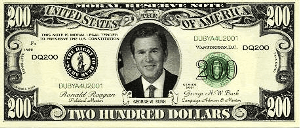Bill of goods
Q From B J Wise: I’ve just come across the phrase bill of goods. I might or might not have read it before, but I had to look it up. Why would selling someone a bill of goods mean to swindle them? I’m not even sure what a bill of goods in the plain sense means.
A Let’s start with your last comment. Other than in the swindling sense, bill of goods is now hardly known, but unless you understand its more literal associations, the idiom doesn’t make sense. A century ago bill of goods was a US expression meaning a consignment of goods of any sort:
He purchased a bill of goods from Brackton, and, with Creech helping, carried it up to the cabin under the bluff. Three trips were needed to pack up all the supplies.
Wildfire, by Zane Grey, 1917.
This is confusing for us today because we would think of this sort of bill as being a piece of paper, most commonly the sort giving notice of money to be paid. This comes from bill having once meant any formal written document, a sense which survives in a number of special cases, such as parliamentary bill, dollar bill and handbill. It can also be a list, as in bill of rights and the old-fashioned bill of fare for a menu.
Based on this idea, bill of goods originally really did mean a list of goods to be provided, what we might today call a consignment note or despatch note:
The merchant, who receives a bill of goods from his correspondent in London or Liverpool, is particular not only to file that bill for future reference, but to copy it entire into an invoice book, that he may at pleasure look to the quantity, quality, and price of the various articles.
Gould’s Universal Index, And Everybody’s Own Book, 1842.
At some point in the nineteenth century, it changed from being a list to the goods that were listed.
Incidentally, bill comes from the classical Latin bulla for various globular objects such as a bubble, boss or stud. In medieval Latin it shifted to being the seal on a document; in time it came to mean the document instead. In English bulla became bill. It also became bull, as in a Papal bull and similar edicts.

Not a valid dollar bill: it’s a bill of goods.
Sometime around the 1920s bill of goods took on the meaning that you’re asking about — to cheat, swindle or get something over on somebody. We don’t know exactly when or why. However, the two ideas are intimately connected, since there’s nothing new in the idea of somebody cheating another by selling them inferior items or taking money for goods that never arrive. The link is expressed pithily in the first example of the phrase’s use we know about:
What has become of the old fashioned salesman who got his customer drunk and then sold him a bill of goods?
Atchison Daily Globe (Kansas), 5 Jan. 1933.
More recently, as the literal sense of bill of goods has fallen out of memory, the expression has contracted again:
He’s already indicated plans to draw sharp contrasts between his ideas on the economy and the Republican approach, which the president recently dismissed as a “bill of goods” that amounts to little more than slashing spending on vital programs like education and Medicare.
Carroll Daily Times Herald (Carroll, Iowa), 15 Aug. 2011.
In the reverse of the coin, people may sometimes buy a bill of goods.
